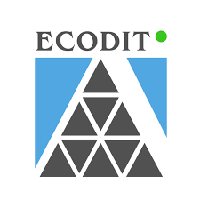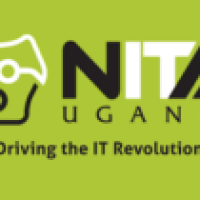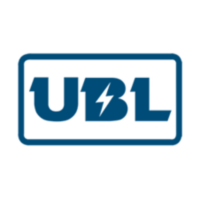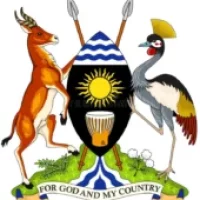Break Free! is a joint lobby and advocacy programme of Plan International Netherlands, SRHR Africa Trust (SAT) and Forum for African Women Educationalists (FAWE) in collaboration with technical partners KIT Institute (KIT) and Rozaria Memorial Trust (RMT). Envisaged in the Break Free! consortium is a society where adolescents can exercise their right to live free from Teenage Pregnancy (TP) and Child Marriage (CM), supported by civil society.
The programme is funded by and in partnership with the Dutch Ministry of Foreign Affairs (MoFA) under the Strengthening Civil Society for SRHR partnership fund with 25 million euros for the period of five years from January 2021 to December 2025. A baseline study was conducted in 2021 to serve as a benchmark for programme’s progress tracking and achievements. A mid-term review (MTR) was conducted in 2023, tracking progress and identifying lessons. In 2025, an external end evaluation will be conducted.
The Break Free! programme
The strategic objective of the Break Free! consortium is that adolescents exercise their right to live free from teenage pregnancy (TP) and child marriage (CM) supported by civil society. The Break Free! programme strengthens civil society organizations, youth-led groups and networks to lobby and advocate for improved legislation and policy implementation to increase youths’ agency and to promote social norm change in favour of the prevention of CM/TP. Three pathways of change have been identified leading towards three outcomes and the strategic programme objective:
- Outcome area 1: Adolescent girls at risk of CM/TP access quality and safe education
- Outcome area 2: Duty bearers and decision-makers develop, resource and implement laws and policies that respond to adolescents’ needs
- Outcome area 3: Adolescents access quality SRHR information, education and services
To achieve these outcomes, seven key strategies have been prioritized:
- Social movement and network building of (youth-led) CSOs
- Capacity building of (youth) civil society organizations (CSOs)
- Promote access to lobby platforms
- Lobby and advocacy campaigns
- Research
- Learning and exchange
Break Free! is implemented in Burkina Faso, Ethiopia, Kenya, Mali, Malawi, Mozambique, Niger, Sudan, Zambia, as well as at Pan-African regional level, targeting institutions and other stakeholders operating at this broader level.
The Break Free! Mid-Term Review report describes that trends in the context have intensified dramatically. Intersecting political, climate and economic crises reinforce each other in many of the programme implementation countries. The effect on target groups is detrimental: the vulnerability of women and girls to harmful practices increases and negatively affects target groups’ safety, livelihoods, and access to essential services. Significant negative changes have happened in Sudan, Mali, Niger, Burkina Faso and Ethiopia. The conflict in Sudan resulted in the relocation of the programme to implementation areas in Kassala and White Nile States. In Sudan, Ethiopia, Niger, Burkina Faso and Mali, the programme strategies were adapted to the local humanitarian context and have included IDPs in the groups targeted.
Scope of the evaluation
The evaluation will cover the period of January 2021 – December 2025. The evaluation shall provide a representative conclusion on the whole programme including achievements to date on the programme indicators for all 9 countries and the regional African component. The evaluation shall be guided by the guidelines for evaluations of the Policy and Operations Evaluation Department of the MOFA (IOB), and the 17 evaluation criteria of the IOB.
Due to the significant contextual changes in several countries, it is in the scope of this evaluation to explore the pathways of change over time within a country while considering the contextual changes, and how country programmes adapted to the changes. To zoom into specific programme components, In-depth evaluation can be proposed for a selected number of countries. The consultant shall select the countries and components, in consultation with the consortium. The main criteria for selection are: 1) thematic coverage of the Break Free! outcome areas; 2) geographical spread within countries and regional representation; 3) key developments in the context in which the programme operates, including in space for civil society.
The response to evaluation question 5 should be a cohesive conclusion of the findings related to the evaluation questions.
Purpose and objectives of the end-term evaluation
The Break Free! programme formally ends in December 2025 and per the requirements of the Dutch Ministry of Foreign Affairs, the Break Free! consortium commissions an independent end evaluation by an external party in the final year of implementation of the programme, covering the full programme period of January 2021 until December 2025.
The objective of the end-term evaluation is to fulfil the accountability requirements of the MoFA and serves a learning purpose, with special attention to the following:
- Evaluate the effectiveness of the programme by investigating the validity of the Theory of Change, how and to what extent the programme achieved the intended results, and to what extent the programme was able to adapt to the changing contexts;
- Assess how the Break Free! consortium promotes sustainability of programme results;
- Assess the internal and external coherence of the Break Free! programme;
- Assess the consortium collaboration in terms of how the Break Free! consortium contributed to equitable partnerships;
- Identify the drivers, constraints, good practices and lessons learned in achieving the results
Evaluation questions
In response to the above questions for each of the outcome areas (see questions 1.1-1.3), the consultant is to validate assumptions and pay particular attention to the following:
a. To what extent were results achieved per indicator?
b. How were results achieved and how can these be explained and/or attributed to programme activities?
c. Comparing the planned final outcomes versus achieved outcomes: did change occur in the way we expected?
d. Unintended and unexpected results (positive or negative) stemming from programme implementation.
e. How did the programme adjust its strategies and outcomes in response to contextual challenges (e.g. humanitarian crisis) and how did adaptations contribute to the programme outcomes?
1.1 Outcome area 1: How did the programme support adolescent girls at risk of CM/TP/FGM-C to access safe and quality education, and what outcomes were achieved?
1.2 Outcome area 2: How did the programme support the development, resourcing and implementation of laws and policies that respond to adolescent girls’ needs; and what outcomes were achieved?
1.3 Outcome area 3: How did the programme support improved access for adolescents to quality SRHR education, information and services; and what outcomes were achieved
2. What strategies have been applied to promote sustainability of results beyond 2025?
2.1 What are the enablers and disablers that contributed to sustainability in: youth voice and agency, (youth) organization’s capacity; linking and networking/ network building of youth (organization); and an enabling environment?
3. How well did the outcome areas work together and contribute to the programme goal(s)?
3.1 Did change occur in line with expectations and assumptions in the programme ToC? If not, what might be alternatives pathways and assumptions?
3.2 To what extent did the Break Free! consortium work in coherence and how did this contribute to reaching the programme objectives and intended results?
3.3 In what ways did Break Free! align with national policies and priorities in the implementation countries, and worked in complementarity with other (local) SRHR programmes, MFA and the embassies and the MFA SCS policy framework?
4. To what extent was the internal and external collaboration of Break Free! equitable?
4.1 To what extent was the external collaboration of Break Free! Equitable?
4.2 To what extent did the Break Free! consortium contribute to southern leadership and equitable internal relationships and decision making?
5. What are lessons learned in the Break Free! programme?
5.1 How did the consortium incorporate findings of the mid-term review?
5.2 What are the lessons learned from programme strategies and implementation?
5.3 What are lessons learned from the partnership collaboration?
5.4 What good practices can be identified?
5.5 What recommendations can be made for future programming?











